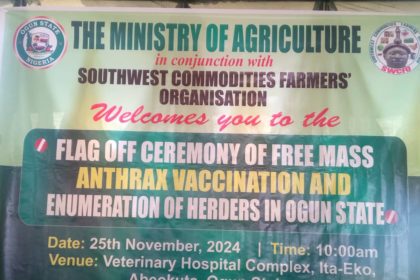
By Adeyemi Adekunle
Nairobi Court of Appeal confirmed its decision to block imports of genetically modified organisms (GMOs) into Kenya, marking a significant victory for small-holder farmer movements such as the Kenya Peasants League and the Biodiversity and Biosafety Association of Kenya (BIBA).
This verdict echoes a growing chorus of discontent among agricultural communities worldwide, as food sovereignty activists intensify efforts to challenge the dominance of GMOs in food systems.
The ruling follows the Kenyan government’s ill-fated attempt to lift a long-standing ban on GMOs in 2022—a move that was met with fierce resistance from grassroots organizations dedicated to protecting traditional farming practices and ensuring sustainable food sources. While Kenya stands at the forefront of this battle, it is not alone in its pursuit of agricultural independence.
In Mexico, a constitutional amendment passed on March 5th has effectively prohibited the planting of genetically modified corn, a bold response to protracted trade disputes with the United States. Despite losing a key ruling in the international arena, Mexican citizens have rallied against GM corn, bolstered by extensive scientific research highlighting potential health risks associated with the crop. The resilience of the Mexican populace reflects a strong desire to safeguard their food supply.
Similarly, in the Philippines, the Supreme Court’s recent vindication of the farmer-scientist coalition MASIPAG marks another critical juncture. The court’s ban on the commercial cultivation of Golden Rice emphasizes the ongoing struggle against genetically modified crops, reinforcing the call for transparency and safety in food production.
The motivations behind these movements are clear: the fight against GMOs is not just about crops but the survival of farmer autonomy and the integrity of the food system. Many farmers fear that GM crops, which rely heavily on agrochemicals such as fertilizers and pesticides, jeopardize their livelihoods by locking them into a cycle of dependency. The rising costs of inputs, exacerbated by geopolitical tensions and market speculation, have put immense pressure on small-scale farmers, pushing many to the brink of financial ruin.
Concerns remain about the safety of GMOs, with Mexico’s national science agency compiling comprehensive reviews that highlight potential health risks linked to the consumption of GM corn. Coupled with the hazards posed by related agrochemicals, these findings add to the mounting skepticism surrounding the widespread adoption of genetically modified crops.
Research continues to indicate that initiatives like Golden Rice may worsen agricultural consolidation, benefiting a handful of powerful multinational corporations. Currently, Bayer-Monsanto, Syngenta, BASF, and DowDuPont dominate the seed market, controlling a staggering 75% of plant breeding research and 60% of commercial seed sales worldwide. This concentration not only threatens farmer livelihoods but undermines biodiversity and the resilience of food systems.
The resistance against GMOs reveals the commitment of farmers and scientists who are advocating for a future where food sovereignty is prioritized, and sustainable practices are upheld. As this global movement gains traction, the voices of those fighting for their rights and the integrity of their food systems are becoming impossible to ignore.



